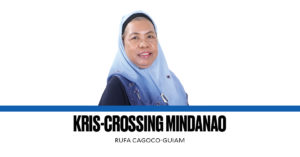In last week’s column, I talked about how, political mudslinging aside, the 18-hour-and-longer workday is an unfortunate reality. It’s a problem that impacts all kinds of workers, although the perspective of this column is limited to a health background. I asked which presidential candidates will most likely have an impact on this reality in the health sector.
Any candidate may promise the world. Indeed, Mayor Rodrigo Duterte in 2016 promised to prioritize the budget for health during his presidency and to require all hospitals to have a facility for indigent patients for whom all expenses would be paid. In August 2016, he slashed the following year’s health budget by P31 billion. This continued even in the pandemic; as of November 2021, health groups were still protesting the nonprioritization of the health budget.
Under this administration, despite initial promises, there was particular neglect when it came to human resources for health. Despite calls for better benefits and salaries, there was no marked improvement in job security and compensation of health care workers (HCWs). We have continued to lose health professionals to better opportunities abroad. This is in contrast to the increase in salaries of soldiers and policemen, which Mr. Duterte defended in light of complaints that the salaries of teachers and health workers were not similarly raised.
The health care platforms of our presidential candidates, scattered across interviews and campaign releases, all sound good and lofty. Each candidate has promised an increase in HCW salary. Vice President Leni Robredo promised expansion of hospital capacities, strengthened community-based health programs, acceleration of universal health care, and a more prioritized health budget. Bongbong Marcos Jr. came forward with vague promises of a “reorganization” of the health system. He has also rightly spoken about the need to support medical research (while incorrectly and needlessly attributing the establishment of the Research Institute for Tropical Medicine to his father’s administration).
Mayor Isko Moreno proposed targets for doctor to citizen ratios and scholarships per year for health courses. He also proposed more than a hundred thousand additional hospital beds in his first 1,000 days as president, despite a clear shortage in immediately available HCWs to tend to those beds. Manny Pacquiao has echoed the usual proposals for more health facilities in the provinces and easier processing of PhilHealth claims. Leody de Guzman has linked better health to a strengthened agriculture sector, which is logical but nonspecific. He also proposed to increase our HCW manpower by encouraging more students to take up health. Ping Lacson proposed a budget for full implementation of the Universal Health Care Act.
Everyone sounds good during the campaign period. Any HCW can find something to agree with among all of these proposals. As Gideon Lasco pointed out recently, platforms aren’t the only criteria for choosing candidates (“Listening to Ka Leody,” 2/4/22); leadership and political will, the openness to other perspectives, track record, and the ability to respond to crises are also important. Those who are currently in government positions are at an advantage in showing their capabilities; for instance, there are the accomplishments of the Office of the Vice President and Moreno’s improvements in the city of Manila. One hopes that such records show that a candidate will not squander a government position.
For myself, as a health worker, a track record of integrity is paramount. Since the health system’s woes are so closely linked to corruption, I ask: which candidate has no record of it? Since corruption is dishonesty, which candidates have prized honesty and transparency? Since dignified wages and hours are tied to a respect for human rights, which candidates have shown respect for such rights, and have been consistent about opposing their violations, even at the cost of safety or political favor?
Since an overhaul of the health system would require a multidisciplinary approach, which candidate has shown that they willingly listen to collaborators and experts, even at the cost of challenging authorities? Since good governance relies heavily on a culture of truth, which candidates reject historical revisionism and false news? Since as physicians we recognize that health care relies on the strength of communities, which candidates recognize the need for honesty and participation at all levels? With the election only a few months away, I hope we can keep the welfare of the 18-hour-and-more workers among our priorities, and choose based on more than just lofty promises.


